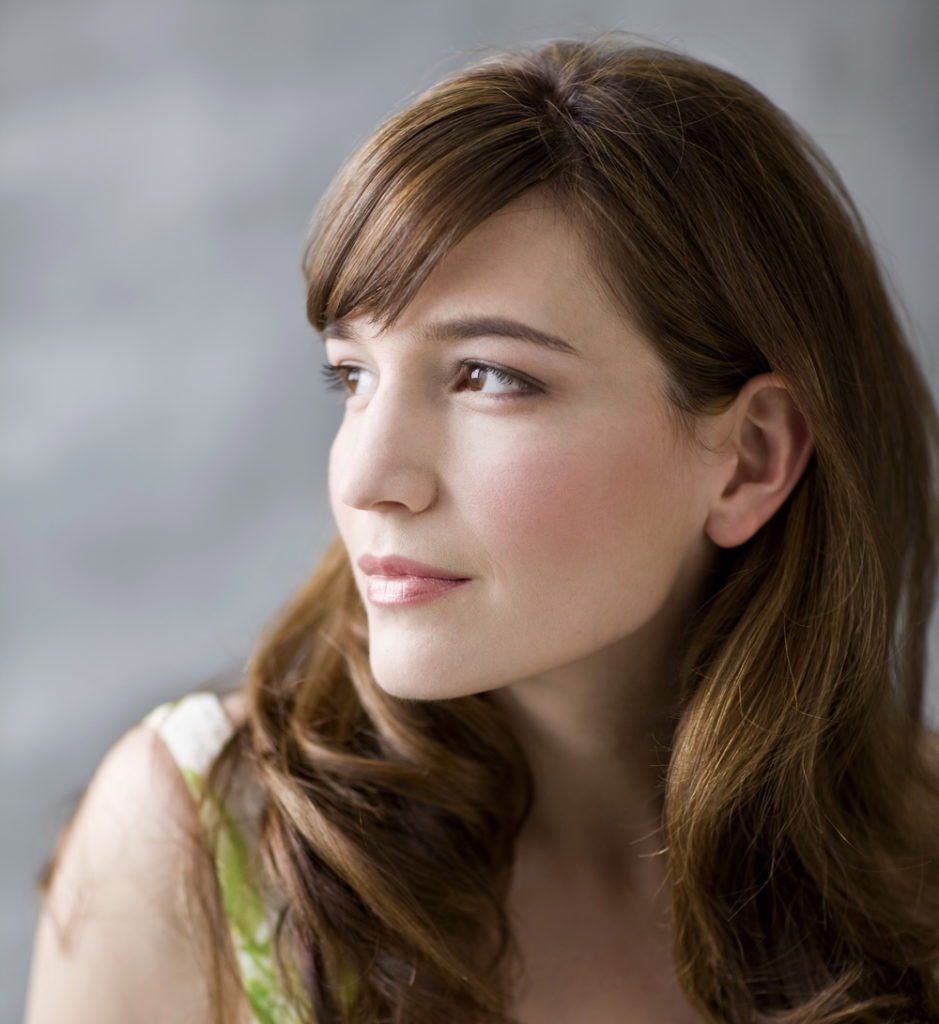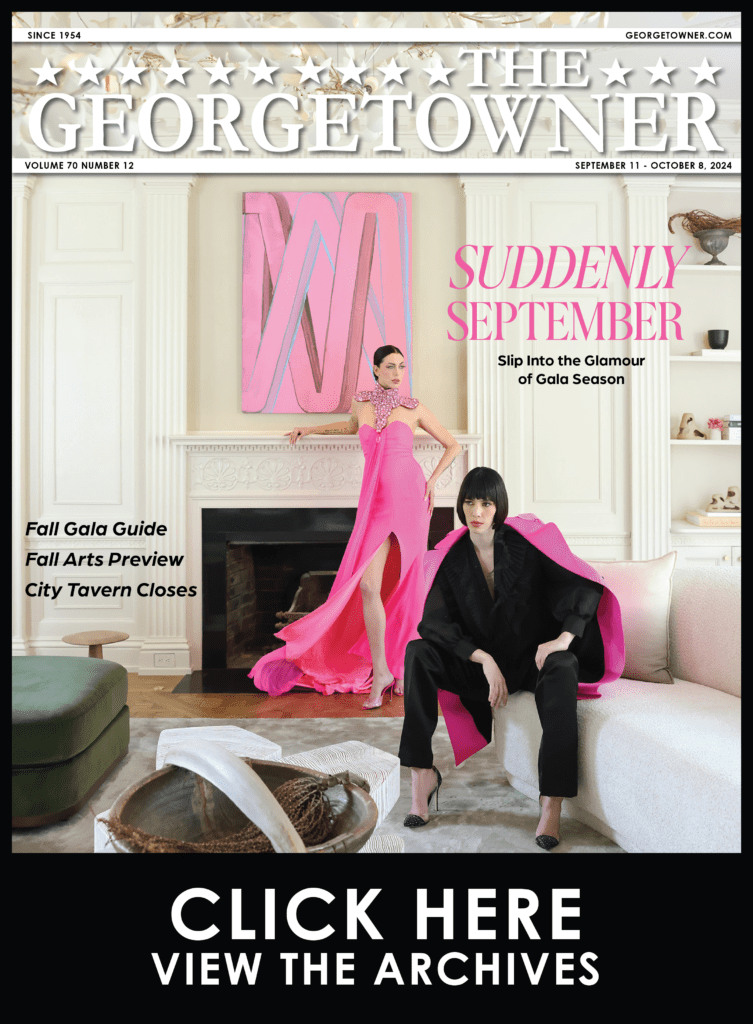Kate Lindsey Is WCO’s Sapho
By • November 15, 2018 0 1175

If you go to Lisner Auditorium on Sunday, Nov. 18, for Washington Concert Opera’s production of French composer Charles Gounod’s 1851 opera “Sapho,” you’ll see a fresh example of WCO’s mission and repertoire.
You will also encounter the considerable gifts — vocally and otherwise — of mezzo-soprano Kate Lindsey in the title role.
The stated mission of Washington Concert Opera, founded in 1986, is “to provide a secure home for rarely performed operatic masterpieces, to give established artists the opportunity to perform in debut roles as well as signature roles, and to introduce the exceptional talents of emerging artists.”
WCO specializes in works like Vincenzo Bellini’s “La straniera” and Gaetano Donizetti’s “Maria di Rohan,” both presented last season, and Donizetti’s “La favorite,” in which Lindsey starred, in the spring of 2016. “Sapho” features her along with tenor Addison Marlor, soprano Amina Edris, bass-baritone Musa Ngqungwana and baritone Brian Vu.
“Sapho” was written by Gounod with the encouragement of and specifically for renowned singer Pauline Viardot. It is a psychologically dense opera set in ancient Greece, depicting a series of “competing love affairs” in the atmosphere of the equally competitive Greek Olympics.
Lindsey has a track record of big and varied parts. She made a major impression in Washington in Washington National Opera’s production of “Dead Man Walking.” What’s more, she seems particularly receptive to stretching capacity, ratcheting up intensity, being, in narrative opera, literally and figuratively a moving force on stage.
A recent foray outside the genre is her jazz-tinged album “Thousands of Miles,” made in collaboration with French pianist Baptiste Trotignon, which includes selections from Kurt Weill’s “Lost in the Stars.”
As for concert opera, she had this to say: “I like the concert form for its purity in concentrating on the music. You have to have tremendous focus. For me, it lets you feel the music deeply. There’s a clarity that you don’t get in a staged opera, where you have to keep other things in mind — the whole cast, the costume, the set, what’s going on around you — all of the time that you’re on stage. Here, the music is the strongest, deepest thing, and that frees you, in some ways.
“In the concert form, there’s also a certain amount of tension, a deadline. You put things together more rapidly. There’s a certain amount of electricity in that.”
The Virginia-born Lindsey is not exactly to the opera manor born, “although I always liked to sing,” she said. She was and remains something of an athlete — that is, “until I had a teacher who saw and heard something. She basically saw me as a classical music singer, and that was sort of it. My vocation.”
Now 37, and the mother of a one-year-old boy — her husband is a documentary filmmaker — Lindsey seems in conversation the very model of a contemporary artistic performer: articulate, intellectual at times, full of enthusiasm and energy, somebody who has given considerable thought to what she does and the life she’s led and is living. At times, that life has been nomadic, exile in motion.
Over the last three years, she has performed at the Salzburg Festival, at the National Opera in Amsterdam, at London’s Royal Opera House and Royal Albert Hall, at the Théâtre de Caen, at the Théâtre des Champs Elysées and the Opéra Comique in Paris, in Barcelona and Madrid and elsewhere.
Look at variety of the roles: Nerone in “L’incoronazione di Poppea,” Octavian in “Der Rosenkavalier,” Ariodante in Handel’s opera of that name, Rosina in “The Barber of Seville,” Nicklausse in “The Tales of Hoffmann,” Hansel in “Hansel and Gretel,” Cherubino in “Figaro,” Dido in “Dido and Aeneas.”
She’s known for her gift for “trouser roles” — women playing men — most notably Octavian. “For me, that’s challenging. But really, having to use your imagination, it gets complicated,” she said.
If you watch some of her performances on YouTube, you can see where her days as a high school soccer player come in handy. Onstage, she can be a bounder, a physical as well as a musical (and funny) presence.
“The stage is special for us,” she said. “Both my husband and I have jobs where we’re entirely focused when we do it. Onstage, there’s nothing else. You’ve escaped into a special work, and it’s not repeatable. It’s not on a phone or a device. With the music, and performance, it’s you and the audience. You have purpose. It’s a form of escape, of magic, and happiness.”

